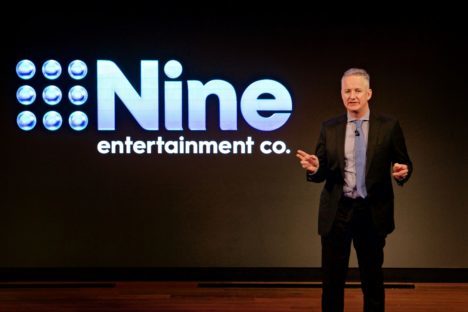Nine warns of ‘short and unpredictable’ ad market as network continues to rail against licence fee costs
Nine Entertainment chief executive Hugh Marks has warned of a short and unpredictable advertising market but said the company is well placed to improve on a disappointing 2016.
Speaking at the network’s annual general meeting today, Marks estimated that revenue in the free to air metro ad market would fall “in the low single digits” in the 16/17 financial year.
But he added he was hopeful that a “re-balancing” would occur over where brands place their advertising dollars, with the advent of new technology potentially helping traditional players.



I’m so old that I remember when Australian TV was great and that the licence fee was in recognition of the fact that the broadcasters were renting bandwidth from its owners, the people of Australia.
Both the quality and the licence fee have been slashed – even though they get more of the spectrum for less money. Go figure.
To paraphrase Joe Hockey – the lifter has become a leaner.